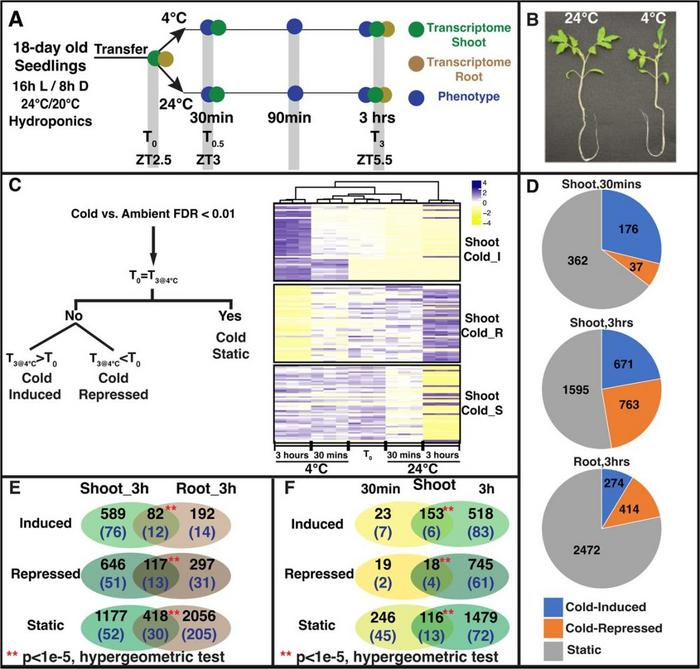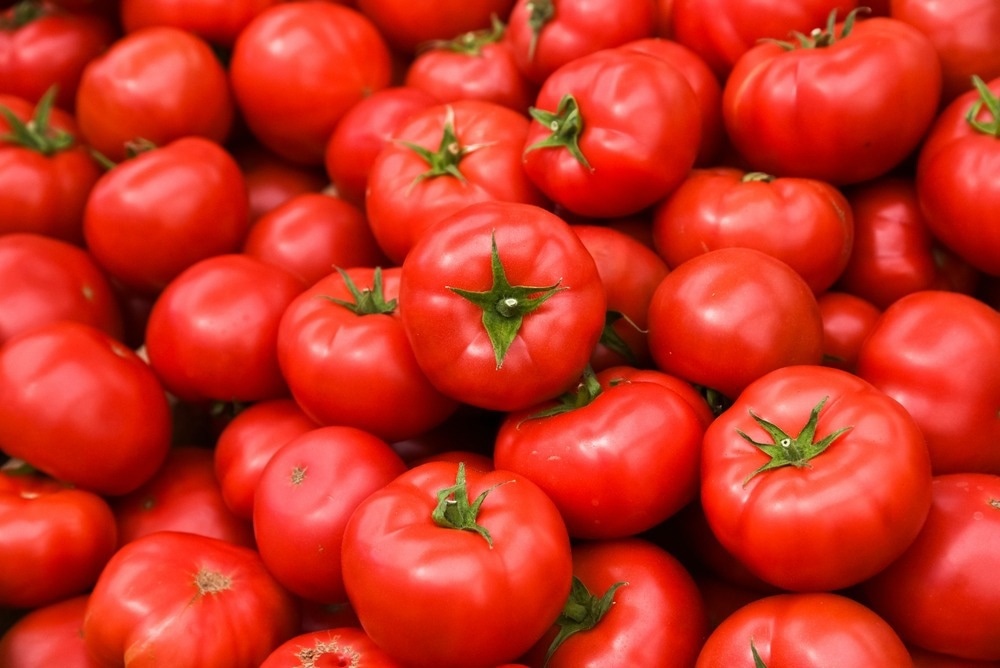Reviewed by Danielle Ellis, B.Sc.Oct 13 2023
Cold sensitivity is a severe concern for several critical crops. While there is evidence that these plants can tolerate low temperatures, the molecular dynamics, particularly those involving the CRT binding factor (CBF) family, have not been well investigated. One major source of worry has been the difference in cold tolerance between temperate and tropical plants, such as the tomato. Furthermore, the accumulation of tiny metabolites known as cryoprotectants plays an important role in plant resistance to cold temperatures.
 Transcriptional response to chilling stress is largely driven by disruption of rhythmic gene expression. Image Credit: Horticulture Research
Transcriptional response to chilling stress is largely driven by disruption of rhythmic gene expression. Image Credit: Horticulture Research
The plant’s circadian clock, which could interact with the cold response system, adds to the complication. Understanding these sophisticated processes is critical to ensuring crop health as the globe faces unpredictable weather patterns owing to climate change.
Horticulture Research released a study titled “Chilling stress drives organ-specific transcriptional cascades and dampens diurnal oscillation in tomato” in July 2023.

Image Credit: Kamila Koziol/Shutterstock.com
To begin, researchers subjected 18-day-old tomato seedlings to 4 °C cold stress at ZT2.5 (ZT = time of onset of light) and analyzed phenotypes at 30 minutes, 90 minutes, and 3 hours. The stem transcriptome was collected 30 minutes and 3 hours after treatment, but the root transcriptome was only sampled 3 hours after treatment.
The findings show that when tomato seedlings are exposed to low temperatures, substantial transcriptional reprogramming occurs in both buds and roots. Further studies discovered that temperature had a greater impact on CCA1 gene expression than light incidence.
In cold-treated plants, the mRNA levels of genes that catalyze the production of trehalose, raffinose, and polyamines increased by an average of tenfold, indicating an increase in the accumulation of these cryoprotectants in response to cold stress. Kyoto Encyclopedia of Genes and Genomes (KEGG) pathway enrichment analysis was used to find functional enrichment among cold-responsive differentially expressed genes (DEGs).
Cold stress appears to activate several genes involved in photosynthesis, hormone signaling, and other processes. The photosynthetic route is the most significantly changed process/pathway in tomato plant branches under cold stress.
The operational efficiency of photosynthesis (PSII) began to grow in cold-treated samples, but as the cold treatment continued, despite the constant overexpression of photosynthetic-related genes, PSII declined. Most photosystem genes were significantly upregulated, but this could not compensate for the net loss of photosynthetic efficiency induced by low-temperature stress.
The amplitude loss of core clock genes found under cold stress most likely impairs their rhythmic control. Furthermore, using a CBF3 knock-out mutant, the researchers discovered that CBF3 is not required for the stimulation of specific cryoprotectant biosynthetic genes in tomatoes under cold stress.
In conclusion, this study provides an extensive view of the complex transcriptional landscape of tomato seedlings under cold stress, showing both tomato-specific traits and plant-species-specific processes. The interaction of cold response and circadian clock emphasizes the complexities of plant responses to environmental stimuli.
Source:
Journal reference:
Agarwal, T., et al. (2023). Chilling stress drives organ-specific transcriptional cascades and dampens diurnal oscillation in tomato. Horticulture Research. doi.org/10.1093/hr/uhad137